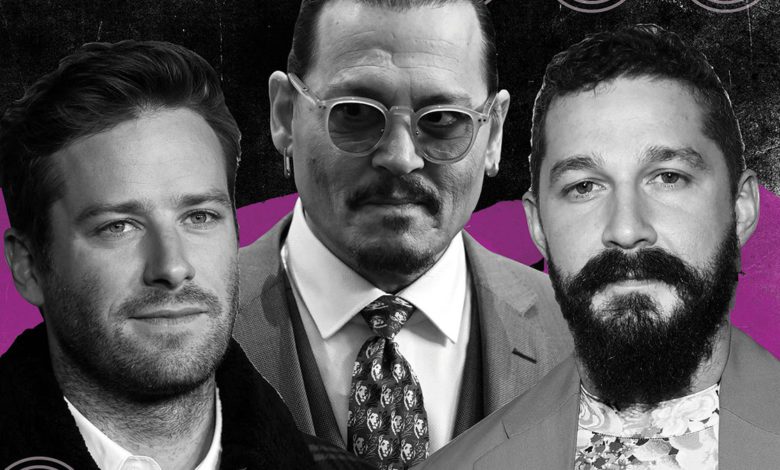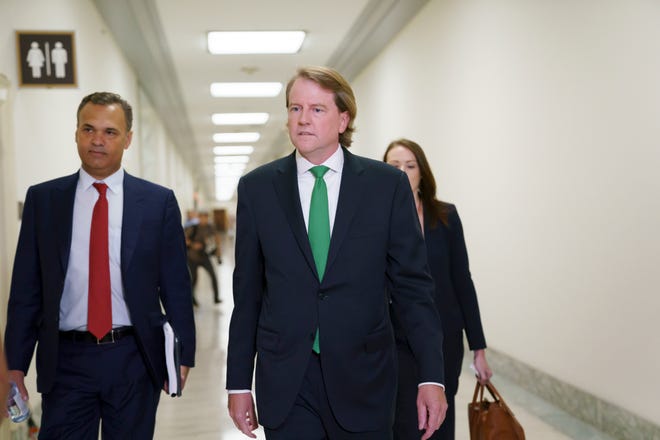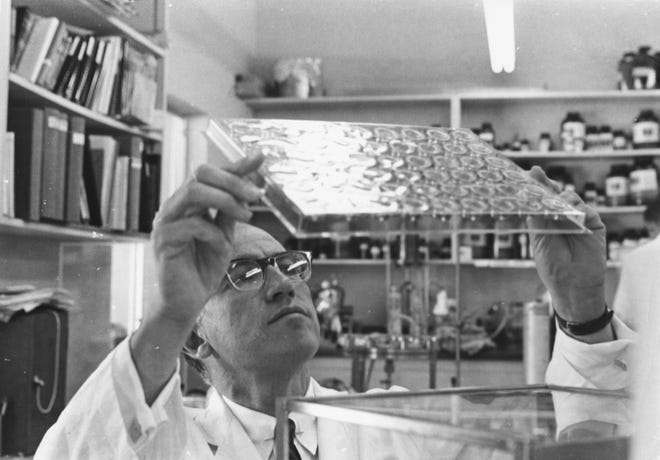
What does it take to get a redemption arc? Is it a sincere, heartfelt apology? An in-depth TV interview?
Depending on the accusations, celebrities use various approaches to repair their image in order to creep back into and reclaim the spotlight. Shia LaBeouf, sued for repeated abuse and assault claims against ex-girlfriend FKA twigs, says he "found his way" after becoming a first-time father and converting to Catholicism. According to Vanity Fair and Insider, Armie Hammer, the former "golden boy" of cinema, checked into a treatment facility after allegations of cannibalism, rape and abuse emerged. And Johnny Depp is working to restore his acting career after years-long legal battles with ex-wife Amber Heard, as unsealed documents contained more allegations against him – including claims that Depp's injury photographs were manipulated.
Sometimes these efforts fall flat (for instance, Woody Allen). But when done correctly, redemption tours can revive a once fallen star. Knowing the controversies surrounding LaBeouf, his re-emergence into the movie world seems calculated and in poor taste to some. And Depp, formerly withdrawn into pariah status, is now directing a movie with Al Pacino. But despite winning the U.S. trial earlier this year that said Heard could not substantiate her accusations, a British judge previously ruled in 2020 that Depp had physically abused his then-wife on at least 12 occasions.
In a "cancel culture" that emphasizes ostracism, these comebacks should not be possible. Yet, people keep forgiving problematic men, despite experts arguing there are very few celebrities who have earned and "deserved" their second chance.

The public loves nothing more than the drama surrounding an unlikeable celebrity's downfall – except a good comeback story.
"People love to bring celebrities back up," says Molly McPherson, a crisis management and public relations expert. The caveat, however, is they have to earn it. A public apology or some acknowledgment of remorse is a start, but the road to redemption goes beyond words and tears.
Gabrielle Gambrell, a chief communications officer and professor at New York University, says it's imperative to "take accountability and moreover solve the problem with a solution." Some stars, she says, may openly share their challenges with fans, accepting responsibility and focusing on solution-driven work. Others, like LaBeouf, admit their wrongdoings for transparency (In an interview with a bishop, he confessed he hurt women and willingly gave women STDs).


Shia LaBeouf, who has been accused of abuse and assault, gained public sympathy and support when he provided texts and emails, suggesting he wasn’t fired but quit Olivia Wilde's film, "Don't Worry Darling."
Shia LaBeouf, who has been accused of abuse and assault, gained public sympathy and support when he provided texts and emails, suggesting he wasn’t fired but quit Olivia Wilde's film, "Don't Worry Darling."
VALERIE MACON/AFP VIA GETTY IMAGES; Chris Pizzello/Invision/AP
"Authenticity is shown by doing the work and nothing less," Gambrell says. "To truly come back, there must be a clear indication of progress, and work must be exhibited beyond words, apologies and even personal anecdotes. It takes time."
Shira Tarrant, an expert in gender and sexual politics, says we cannot forgive alleged and convicted abusers without accountability. Beyond individual acts of atonement (like therapy or rehab), Tarrant expects them to "invest their time and money into community solutions" – which very few celebrities have done.
"We need to talk about transformative or restorative justice, so that victims and survivors are the ones who have the first and biggest voice in what redemption should look like, as opposed to someone's publicist making a statement to clean up their image," Tarrant, a professor at Cal State Long Beach, explains. An example would be establishing a no-cost, therapeutic center for survivors of abuse.
"Most people don't buy the sudden rehab or conversion stories. It reeks of reputation management, and not authentic change."

Considering the hurtful, criminal actions of "redeemed" men, we often demonize women for far less serious misdemeanors, such as a distasteful gaffe or an insensitive tweet. The perfect example is the eager cancellation of Olivia Wilde, who was accused of lying about LaBeouf's firing from "Don't Worry Darling" after he provided emails to Variety showing he had quit the film.
From a PR standpoint, McPherson says LaBeouf "is getting his moment of public redemption," the likely result of a stellar crisis management team juxtaposed with public disdain toward Wilde. But this double standard is indicative of a larger issue with sexism in Hollywood, warns Juliet Williams, a professor of gender studies at the University of California, Los Angeles.
Men, she says, are held to a "much lower standard" than women, in what she calls the "ongoing perennial purity standard." While those like LaBeouf, with histories of abuse and assault allegations, are welcomed back into the spotlight with open arms, women like Wilde and Heard are often seen as "disposable" and are not granted the same grace to redeem themselves.
"We continue to live under the thrall of this idealized standard of perfection for women. Men clearly don't have that," Williams said.

Redemption, McPherson says, becomes more difficult when the accusations are more severe. In egregious cases where a star causes psychological or physical harm to others (Bill Cosby or Harvey Weinstein), "it's harder to come back, because the public can relate to the victimization … and there are just certain crimes against people that the public will not allow space for."
But as seen by the resurgence of many powerful celebrities with controversial pasts and little accountability – think Mel Gibson, Chris Brown, Marilyn Manson – this isn't always the case. Often, redemption is less about accountability and justice and more about "if their artistic talent or demand is greater than the accusation," McPherson says.


Johnny Depp was once withdrawn into pariah status after the ongoing legal battles with his ex-wife, Amber Heard, who accused him of being abusive throughout their relationship. Now, weeks after winning the the U.S. defamation trial, Depp was invited to perform onstage with Jeff Beck during the Helsinki Blues Festival.
Johnny Depp was once withdrawn into pariah status after the ongoing legal battles with his ex-wife, Amber Heard, who accused him of being abusive throughout their relationship. Now, weeks after winning the the U.S. defamation trial, Depp was invited to perform onstage with Jeff Beck during the Helsinki Blues Festival.
JUSSI NUKARI, Lehtikuva/AFP via Getty Images; EVELYN HOCKSTEIN, POOL/AFP via Getty Images
Experts say our culture's pattern of putting celebrities on and off a pedestal does not help us navigate real-life, everyday issues. "Accountability," as defined by a celebrity's PR team, does not equate to justice for survivors of domestic violence or sexual abuse. In the case of LaBeouf, he issued an apology – one that his alleged victim did not accept. Still, some praised his remorsefulness.
"Our culture is captivated by the schadenfreude, but these are not great models for accountability or even due process for the rest of us," Tarrant says.
The comeback cycle will continue to remind the public that famous yet problematic men frequently evade accountability. But who gets redemption and who claims the spotlight ultimately comes down to us.
Ultimately, the ones who decide whether to "redeem" disgraced stars, who to welcome back into the spotlight and arguably control their fame and fortune, is the public.
If you are a survivor of sexual assault, you can call the National Sexual Assault Hotline at 800.656.HOPE (4673) or visit hotline.rainn.org/online and receive confidential support.
Published
Updated
Source link









